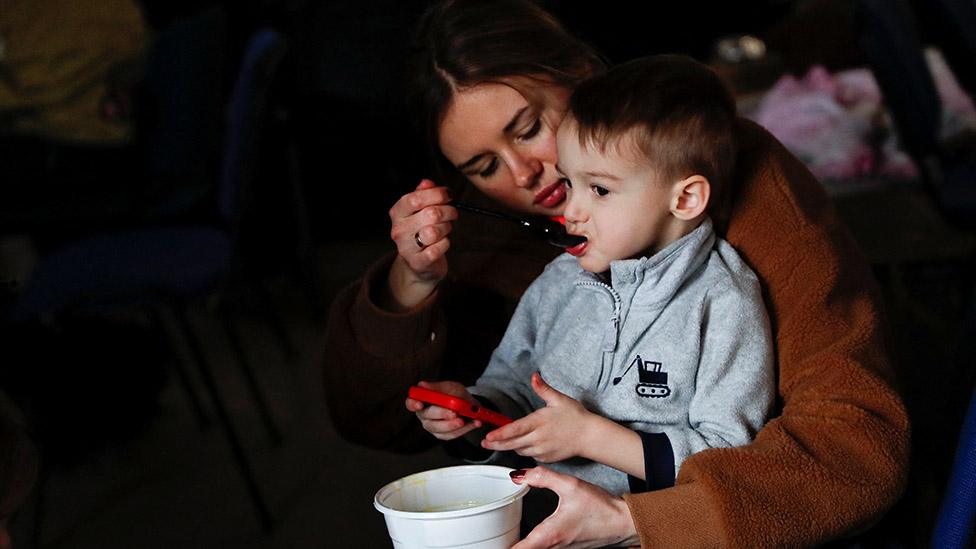Ukraine: Liz Truss calls on international community to step up support
- Published
- comments
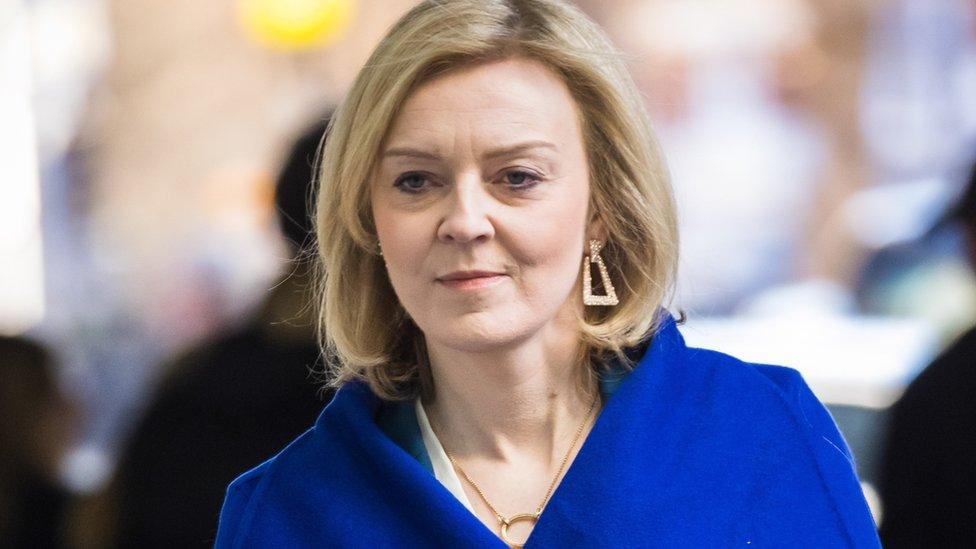
Liz Truss wants allies to agree on more restrictions targeting Russia's oil and gas exports
UK Foreign Secretary Liz Truss is seeking agreement from the international community to step up support for Ukraine, in the face of continuing attacks from Russian forces.
Foreign ministers from across the West have gathered in Brussels to consider how to maintain pressure on Russia.
Ms Truss said she wanted allies to agree to do more to restrict Russian oil and gas exports.
But she also said the existing sanctions regime is damaging Russia.
She told the BBC: "You can see that on the Russian stock markets, the Russian money markets, the fact that people are having to queue for the bank or the metro station."
Ms Truss added that the West needed to do more on sanctions, particularly around fossil fuel exports to Europe, to "cut off and cripple" the Russian economy.
Around half of the European Union's gas and one quarter of its oil imports come from Russia.
Meanwhile, Home Secretary Priti Patel has travelled to Poland to launch a new family scheme for Ukrainian refugees.
Under the extended scheme, which was announced earlier this week, British nationals and anyone settled in the UK will be able to apply to bring their parents, grandparents and siblings to the country.
The UK's initial visa offer was restricted to immediate family, including children and partners.
In Brussels, the foreign secretary has urged her counterparts from Nato, the G7 and EU to "embrace reliable partners rather than be dependant and beholden on any one country" for oil or gas.
Ms Truss, who described it "one of the biggest days of diplomacy", said co-operation between the UK and EU was "essential to defend European security".
"We will work with fellow freedom-loving democracies to tighten the vice around Putin's war machine and signal our strong support for Ukraine's territorial integrity," she added.
Russian President Vladimir Putin has insisted the war in Ukraine is "going to plan", despite taking only one major city - Kherson in the south.
Elsewhere, Ukrainian President Volodymyr Zelensky has accused Russia of "nuclear terror" after it bombarded a large nuclear power station, causing a fire.
The authorities say the Zaporizhzhya plant - which is the biggest of its kind in Europe - is secure and radiation levels are normal.
It comes after President Zelensky asked Mr Putin for one-to-one talks, saying it was the only way to end the war. He has also appealed to Nato to supply warplanes.

Russia attacks Ukraine: More coverage
THE BASICS: Why is Putin invading Ukraine?
INNER CIRCLE: Who's in Putin's entourage, running the war?
IN DEPTH: Full coverage of the conflict

While defensive weapons have been sent to Ukraine, the West has largely responded to the invasion with economic sanctions against Russian individuals, businesses and banks.
On Thursday the UK announced sanctions on two more Russian oligarchs - Alisher Usmanov, a billionaire whose company previously had links with Arsenal football club - and Igor Shuvalov, a former deputy prime minister to Mr Putin.
But there have been calls for swifter clampdowns on oligarchs, with the UK accused of being slower than its European neighbours - claims rejected by Downing Street.
There are fears that oligarchs will sell property and move money and assets out of the UK before they are targeted. Ministers have set up a taskforce to look into individual cases.
Deputy Prime Minister Dominic Raab said he would support seizing property in the UK owned by wealthy Russians with links to Mr Putin, as long as the government has "the evidence and there is the legal basis" to do so.
Mr Raab also confirmed he would support housing Ukrainian refugees in any seized properties, a move called for by the Liberal Democrats.
He also said the government is looking at ways to stop lawsuits being used by wealthy individuals to intimidate journalists and organisations looking into sources of their wealth.
Mr Raab said wealthy people connected to the Russian president were abusing libel laws to intimidate individuals and organisations highlighting corruption in Russia.
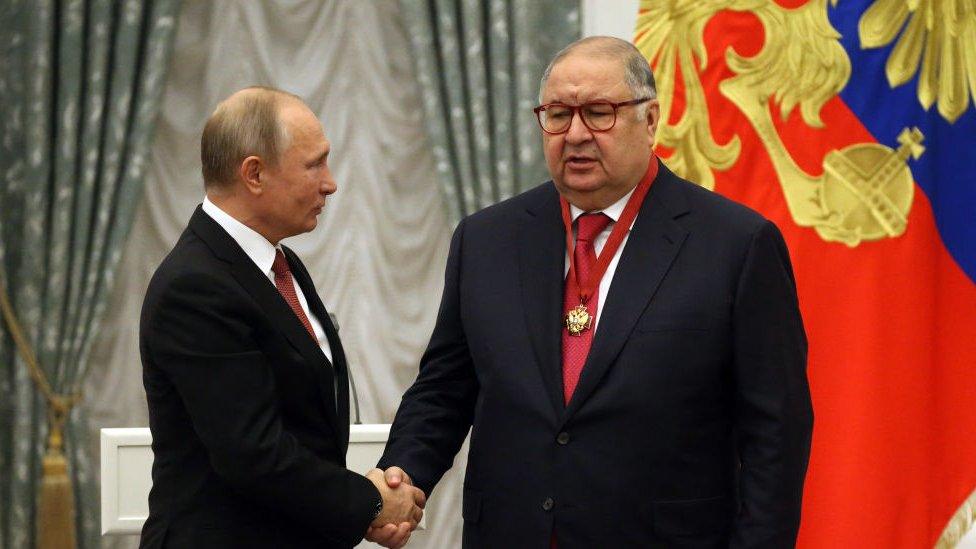
Alisher Usmanov (right) with President Putin at the Kremlin in November 2018
Meanwhile on Friday, the home secretary has met Ukrainians applying for the UK's family scheme in Medyka, near the border with Ukraine.
Ms Patel said the UK was "standing in solidarity" with Ukrainian refugees and the Polish people.
During her visit, Ms Patel told reporters that Ukrainians seeking safety in Poland were fleeing "the most atrocious set of circumstances where they are being persecuted by President Putin".
She said: "We stand shoulder to shoulder with the people of Ukraine but also with our dear friends here in Poland, who are working really night and day, we can all see this, under incredible circumstances."
Under the scheme, normal requirements for salary or language tests will be waived and checks will be accelerated to process applications as quickly as possible, the Home Office said.
It added that "essential security checks" would still take place "given the malign action being taken by the Russian state to infiltrate Ukraine".
It said the family scheme would be followed up by another for Ukrainians with no ties to the UK - with further details to be set out "in due course"
However, Labour called for the creation of a simple emergency visa, valid for 12 months, allowing anyone fleeing the conflict to come to the UK, with normal visa conditions other than biometrics and security checks lifted.
More than one million Ukrainians have fled the country since the invasion began last week, according to the United Nations, with most heading for neighbouring countries.
So far, the UK has sent three planes with 320,000 medical items to help - and the UK's Disasters Emergency Committee has launched an appeal.


- Published3 March 2022

- Published3 March 2022
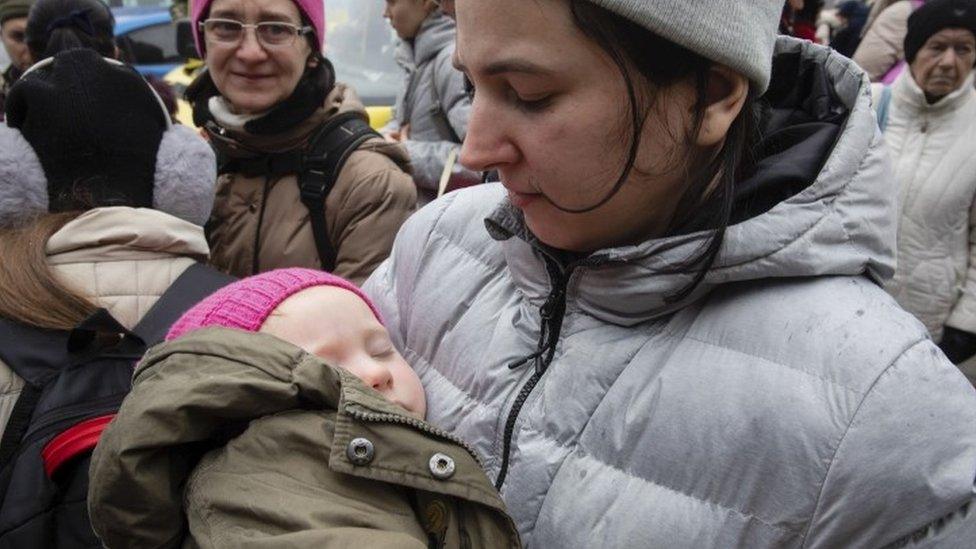
- Published3 March 2022
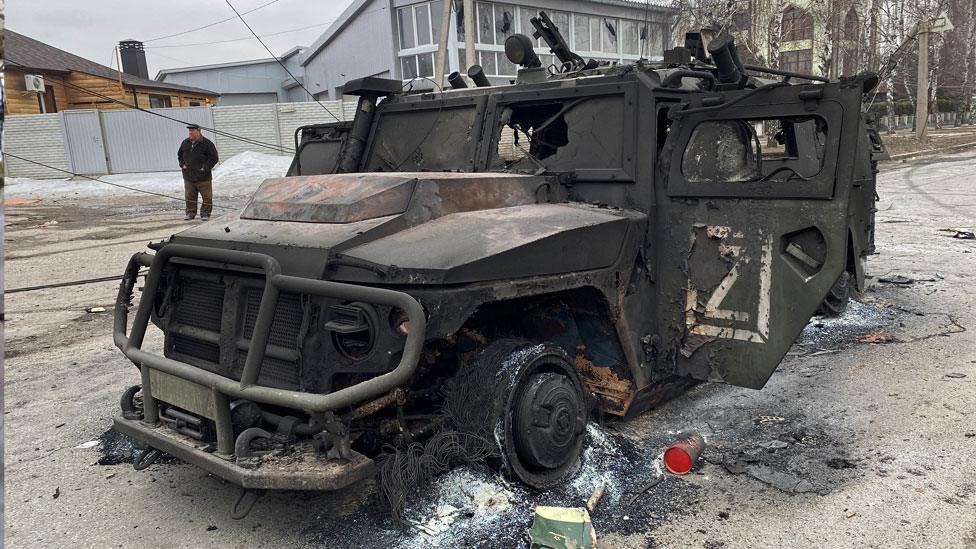
- Published3 March 2022
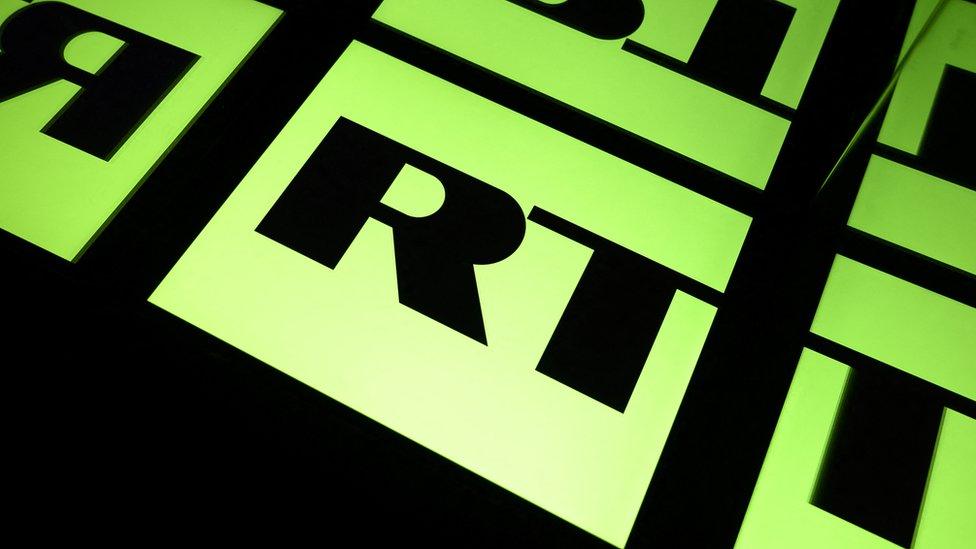
- Published8 April 2022
